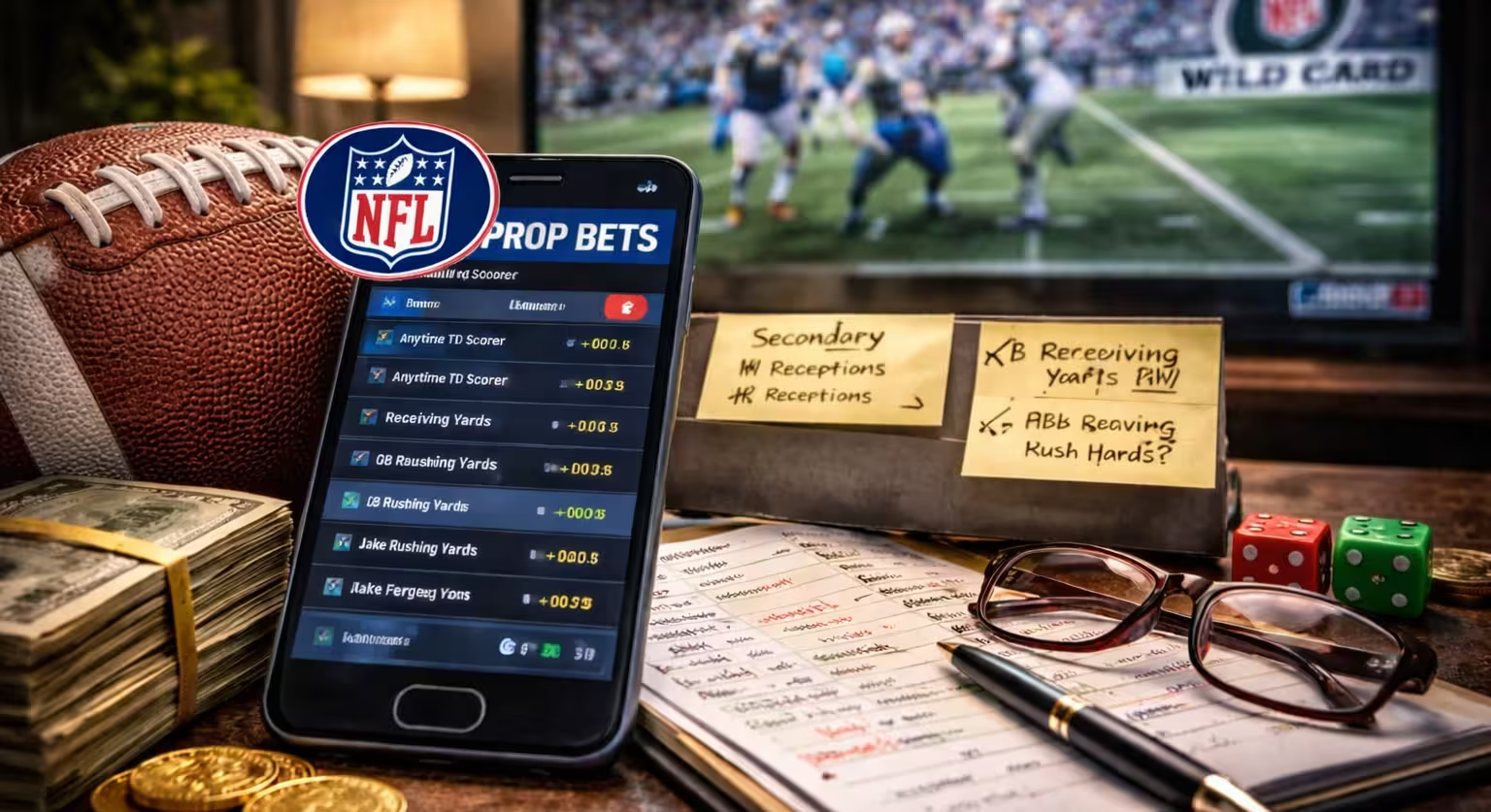The Future of Gambling in the Metaverse
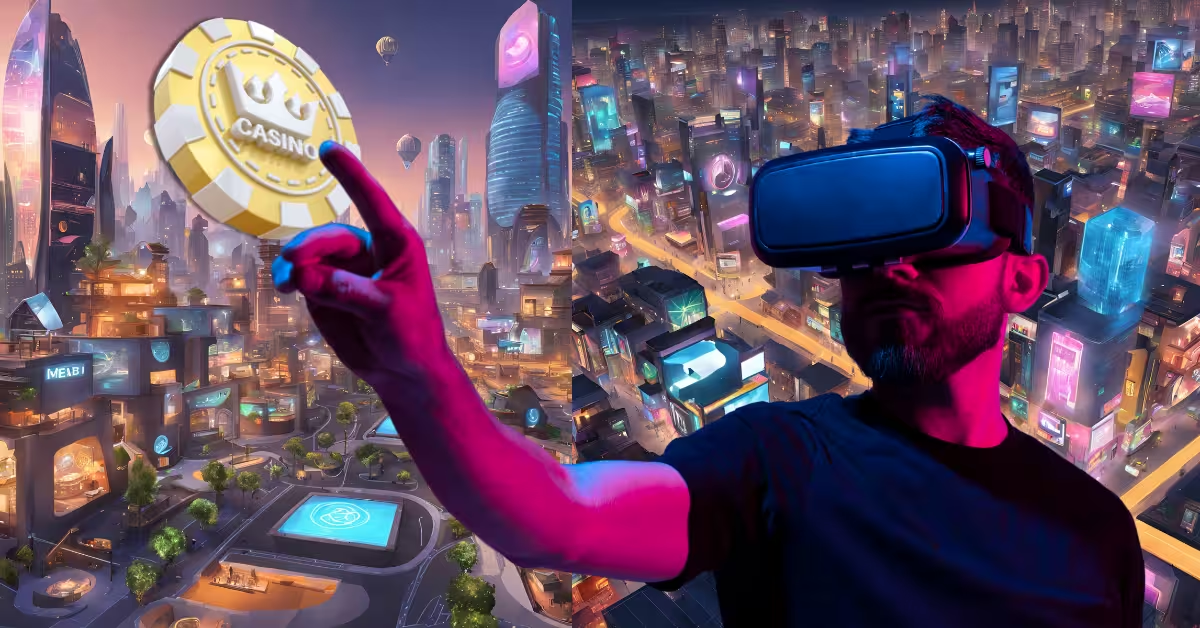
The idea of the metaverse, if you aren’t familiar with the term, is an entire network of immersive virtual worlds.
And it’s no longer a pipe dream for tech lovers; it’s front and center and is actually happening! What is it exactly? Well, it’s a combo of virtual reality (VR), augmented reality (AR), and the internet. How does it work? That’s where metaverse platforms come in.
They create shared digital spaces where people can socialize, play, and do business with a real sense of presence, just like it’s the real world (or close to it).
Major tech companies, like Facebook, which did a rebrand to Meta, are investing in it, accompanied by major interest in NFTs and crypto, have ramped up the metaverse’s stock.
There are analysts who project the metaverse economy could reach $5 trillion by 2030, which goes to show you just how significant this digital frontier could become. In a parallel tech space, Web3 technologies, like the blockchain, cryptocurrencies, NFTs, and decentralized apps, are changing how we partake in online entertainment by enabling digital ownership and peer-to-peer transactions without any central gatekeepers. This means that users can own virtual goods, trade value, and also earn income inside these ecosystems, which is a radical shift from the Web2 model of big platforms controlling all of the data and assets!
So it’s not a shocker that the gambling industry has pricked up its collective ears. Online gambling is already a massive market (tens of billions of dollars globally), and it is always looking for the next innovation to attract players.
The metaverse? It promises to mix the convenience of online betting with the immersive excitement of a real casino. You could “walk” into a fancy casino lobby as a custom avatar, chat with other players at a poker table, or pull a virtual slot lever in a 3D Vegas hall, and all you need to do is log on.
Industry insiders believe that these experiences can and will revolutionize online gambling, bringing in younger, digital-native players and offering novel ways to engage. Major betting companies and startups are experimenting with VR casinos, crypto-betting platforms, and NFT-based games.
Could a trip to the casino not require a trip at all? We are going to look at the state of metaverse gambling as of right now, its benefits and challenges, how regulators and operators are responding, and what the coming years might bring!
What Is the Metaverse, Really?
The metaverse is a persistent digital universe (aka a collection of interconnected virtual worlds) where users are represented by avatars and can interact with each other in real time.
The environments are accessible with VR headsets for a fully immersive 3D experience, or with regular computers and mobile devices in some cases. Main elements of the metaverse include virtual spaces that still exist even when you log off, user avatars that you can customize, and a functioning economy where digital goods and properties have actual value. Advanced metaverse platforms incorporate AR overlays or VR immersion, and a lot of them utilize blockchain technology to enable ownership of in-game assets (as NFTs) and digital currencies for transactions.
Who are the biggest players building the metaverse? There are both big tech companies and decentralized communities involved. On the corporate side, you have Meta (Facebook), which has invested heavily in VR (Oculus devices) and its platform Horizon Worlds in order to create social virtual worlds.
Roblox and Minecraft are also considered proto-metaverses, and they are hugely popular platforms (Roblox has over 150 million monthly users ) where users play and create in user-generated 3D worlds, although these are still Web2 (centrally controlled) environments.
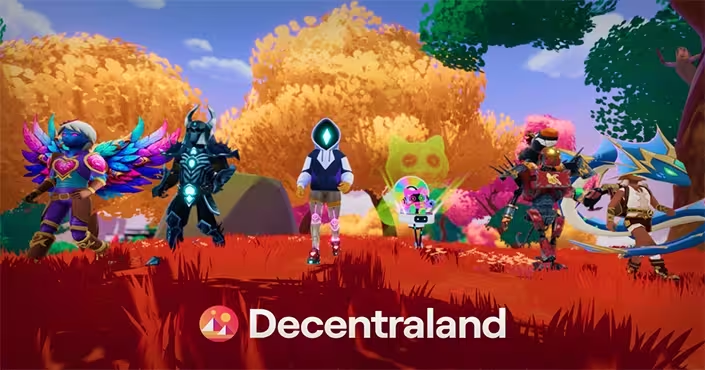
In the Web3 realm, platforms like Decentraland and The Sandbox have gained a lot of traction. Decentraland is a blockchain-based world where users own land and content via NFTs on Ethereum, and Sandbox has a similar model with voxel-style lands and games on the blockchain.
Both have attracted attention by hosting events and allowing users and brands to build there. Other notable metaverse or VR world projects include Cryptovoxels (Voxels), Somnium Space, Spatial, and game worlds like Epic’s Fortnite (which, while not blockchain-based, has lots of metaverse-like qualities like virtual concerts and a persistent social space). The metaverse isn’t one single app or platform; it’s an overarching concept of virtual worlds, and there are efforts underway to make them interoperable in the future.
A main trend in the metaverse’s evolution is the shift from Web2 to Web3. In Web2 virtual worlds (like early MMOs or Roblox), the platform company owns the servers and all the content; users just get a license to use their accounts and purchases.
Web3 changes that model using decentralization: assets like virtual land, avatar skins, or collectibles are represented as NFTs in the user’s crypto wallet, giving the user true ownership and the ability to resell or transfer them outside the platform.
And cryptocurrencies enable decentralized payments and economies inside virtual worlds without needing traditional banks or payment processors. Smart contracts (self-executing code on blockchain) can govern transactions and game rules in the spaces. The result is a more user-owned ecosystem; Decentraland is run by a DAO (decentralized autonomous organization) where landowners vote on proposals instead of a corporation. A Web3 approach means the metaverse isn’t only VR rooms, but also a new economic layer of digital property rights and peer-to-peer trade.
The distinction is really important for gambling applications! Why? Because owning your chips or cards as tokens and having games operate via smart contracts is super different from traditional online casinos.
How Gambling Is Entering the Metaverse
With the metaverse still taking form, pioneering projects have started bringing gambling into the virtual worlds. There are a handful of early platforms and games that give us a glimpse of how casinos and betting might work in Web3 and VR environments:
Decentral Games: Casinos in Decentraland
Maybe the most cited example is Decentral Games, a company that built virtual casinos inside Decentraland. They have virtual venues like Tominoya Casino and an official Atari Casino (branded after the classic gaming company) in Decentraland’s Vegas City district.
The casinos allow players (who are represented by avatars) to walk around a digital casino floor and play games like poker, blackjack, roulette, slot machines, and more. What’s so innovative is that wagers are made in cryptocurrency: Decentraland’s native MANA token or stablecoins, and the games are provably fair (their randomness can be verified on the blockchain).
Decentral Games introduced ICE Poker, a flagship poker room that has a play-to-earn model. Players have to obtain an NFT wearable (a digital clothing item for their avatar) as a kind of entry ticket; once they have that, they can join poker tables and earn ICE tokens by completing daily challenges and winning games.
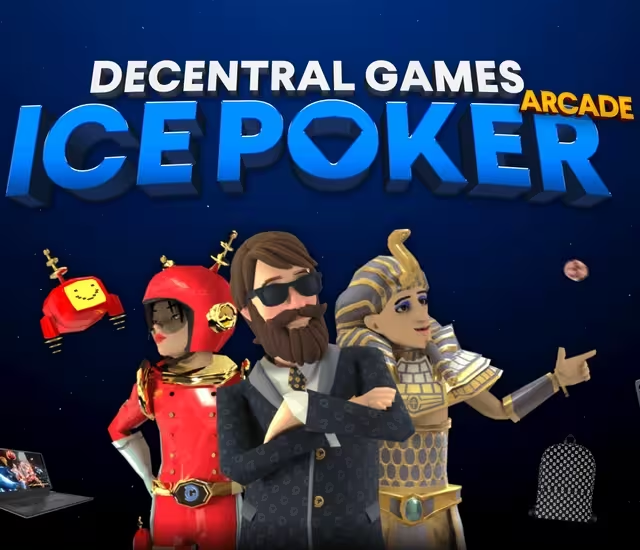
ICE Poker took off; by early 2023, it was hosting around 6,000 unique players per day, which accounted for roughly 30% of all daily users in Decentraland. The virtual casino reportedly generated $7.5 million in revenue over a three-month period (late 2021 into early 2022). At peak times, over 1,000 players are concurrently at the poker tables, which, in the context of nascent open metaverse platforms, is substantial engagement.
Its success has shown that there is a high demand for metaverse gambling and has been called the metaverse’s first “killer app” by players. Participants in the casinos use a crypto wallet (like MetaMask) to bring funds in and out, and winners profit in crypto, which they can then cash out.
Decentral Games’ casinos run on a DAO model; the community of $DG token holders helps govern them, and gamblers are “mining” the $DG governance token as rewards while they play.
The Sandbox and Others
Similar efforts are underway in The Sandbox metaverse. Sandbox has sold virtual land to various companies, and some plots are earmarked for casino games.
Atari had plans to build a casino in The Sandbox as well, leveraging its brand. And although Sandbox’s gambling projects have been slower to launch, the idea is basically the same: users visit a virtual casino constructed on Sandbox land and gamble with crypto.
There are also independent Web3 worlds like Somnium Space and CryptoVoxels, where user-run casinos have popped up. Second Life, a pre-blockchain virtual world, had user-run casinos back in the 2000s (until real-money gambling was banned there in 2007 due to legal issues), so the concept of virtual world gambling isn’t wholly new, but blockchain now provides the infrastructure to do it with real value at stake.
VR Poker and Social Casinos
Outside of crypto-centric metaverses, established gaming companies are bringing gambling games to VR. A great example of this is PokerStars VR, a free-to-play immersive poker game launched by PokerStars, which is one of the largest online poker operators.
It has been rebranded as Vegas Infinite, and the platform lets you have a seat at a virtual poker table using a VR headset and play Texas Hold’em with people from all over the world. It’s expanded to include other casino staples like blackjack, roulette, slots, and craps, and it’s all in a lavish 3D casino environment.
You can pick up your chips, throw cards, and talk with other players via voice chat, simulating the social fun of a real casino. PokerStars VR / Vegas Infinite is social casino gaming (chips are play-money; you can’t win real cash, and it’s intended for entertainment), it does hint at what real-money gambling could look like in VR.
The game runs on Meta Quest VR headsets and also on PC/Steam, and PokerStars made it cross-platform, so you don’t need a headset to join via PC, which lowers the barrier to entry, and the cross-device accessibility has helped to build a community.
They’ve run VR poker tournaments branded as the Metaverse Poker Tour, and the above products suggest that major gambling companies see immersive tech as a part of their future.
NFTs as Chips, Avatars, or VIP Passes
In metaverse gambling projects, NFTs play a big part; they aren’t just collectibles. Decentraland’s ICE Poker requires a wearable NFT to participate, so the NFT is like your membership card or “chips” that grant you access to win real money.
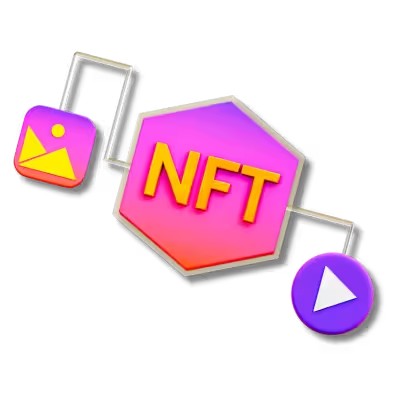
The wearables have become valuable; the floor price was around 2.4 ETH ( ~$6,500) at one point, and NFTs can also represent in-game items or trophies; a poker tournament could award a unique NFT to the champion. Some startups have floated ideas of NFT-based membership clubs, like owning a certain NFT could let you enter an exclusive high-roller lounge in the metaverse, or yield a share of a casino’s profits.
Avatars themselves can be NFTs too! You can buy an avatar skin or wearable that not only looks cool but also signals VIP status or provides perks in a virtual casino. A merging of gambling and the NFT collectibles market creates new ways for casinos to engage and reward players. And using NFTs and crypto wallets means that anyone around the globe can participate; there’s no lengthy account registration or bank transfer needed, you just connect your wallet and play, which is exciting and problematic from a regulatory standpoint.
Crypto Funding and Betting
Almost all metaverse gambling relies on cryptocurrencies for bets and payouts. This can include well-known coins like ETH, BTC, or stablecoins (USDT), platform-specific tokens like Decentraland’s MANA, or a casino’s own token.
Using crypto allows these platforms to be borderless and bankless; players can deposit funds by sending crypto from their wallet and cash out the same way, without the need for traditional payment processors.
Smart contracts can handle bet outcomes and automatically transfer winnings to the winner’s address. According to a legal analysis, it’s expected that metaverse casinos will primarily accept crypto as payment, because their target audience is already the crypto-loving crowd and because integrating with blockchain is all part of the appeal.
So, a typical flow will look like this: a user converts fiat money to crypto on an exchange, deposits crypto into the metaverse casino’s wallet via a dApp, then uses those tokens to buy chips or place bets in the virtual world. Winnings are paid in the same crypto, which the user can later convert back to fiat if they want.
Some metaverse casinos could pay out directly in NFTs or other digital assets, too; a jackpot could be an NFT art piece or a rare wearable. All of this is facilitated by linking a Web3 wallet (like MetaMask) to the virtual world. In practice? It means metaverse gamblers have to be okay with using crypto wallets and the risks that come with them (managing private keys, volatile token prices, etc.). It’s a really different model from depositing via credit card on a traditional betting site!
The Benefits of Gambling in the Metaverse
What are the benefits of gambling in the Metaverse? How much time do you have? We don’t have all day, so we’ll touch on the five we like the best!
The most obvious benefit is the immersive nature of VR and 3D worlds. Metaverse gambling can feel much more like a night at a real casino compared to clicking buttons on a flat website.
With VR headsets or 3D graphics, you can enter a richly decorated virtual casino with realistic slot machines, card tables, flashing lights and sounds, and live dealers or hosts that are represented by avatars. Instead of navigating through menus, you physically (virtually) walk around the casino floor to choose your game.
In a VR poker room, you see chips and cards on the table in front of you, you can pick them up or gesticulate to bluff, and you hear the chatter of players around you. The level of immersion adds excitement and atmosphere that regular online gambling just doesn’t have. Some platforms are working on live dealer games in 3D; there is a human croupier whose motion-captured avatar can interact with you in a VR blackjack game, or having a virtual sports book where you’re watching a live match on a big screen with others while betting in real time.
All of the above experiences tap into the sensory and social elements that make in-person gambling entertaining. As VR hardware improves (with higher resolution, wider field of view, and perhaps haptic feedback suits that let you “feel” virtual actions), the line between virtual and reality will get even blurrier.
Gambling has always been a social activity; the chatter at a poker table, the collective intake of breath when the roulette ball lands on 0; you know what we mean.
Traditional online gambling loses all of that because players are isolated behind their screens. Metaverse platforms restore and improve the social side. In a virtual casino, your avatar can directly interact with other players’ avatars. You can strike up conversations via text or voice chat, observe others’ games, high-five someone after a win, or buy virtual drinks for friends. The social atmosphere is much closer to a night out than to a video game lobby.
The community aspect is huge; players form friendships and regular meetup times in these worlds. The most advanced metaverse casinos support spatial voice chat, meaning you hear people near you in the virtual space, adding realism to conversations. And tournaments and group events in the metaverse are legendary among fans.
A poker tournament in a VR poker room feels like a real tournament; you see all the participants around you, and can spectate at other tables after you bust. The social immersion will not only attract more casual players, but it will also open up new forms of gameplay. You could have a metaverse scavenger hunt that leads players through various casino games, or an in-world leaderboard where the top roulette winners in a given week get recognition in a public plaza. The metaverse turns online gambling into a shared social experience instead of a solitary one, which only increases the entertainment value.
Another benefit is the decentralized structure of Web3 gambling platforms. Players can truly own their in-game assets, which is empowering.
If you buy chips or an item in a metaverse casino, it might be issued as a token/NFT to your wallet, meaning it’s yours; you could sell it or use it elsewhere if it’s interoperable. This is different from a traditional online casino, where any “loyalty points” or items are just database entries controlled by the operator.
In metaverse casinos like Decentral Games, the casino’s currency ($ICE token) can be traded on open markets, and wearables won or purchased by players can be sold on NFT marketplaces like OpenSea.
Players also have more transparency and trust because of blockchain; the use of smart contracts and provably fair algorithms guarantees the verifiability of game fairness; a crypto dice game will publish the cryptographic hash of the outcome in advance, which allows players to confirm that no one messed with the result.
Every transaction (bet, payout) is recorded on the blockchain ledger for anyone to audit. This increases confidence that the house isn’t cheating, which is a common worry in online gambling. Decentralization also means lower fees and faster payouts. Without as many middlemen, a crypto casino can automatically pay out your winnings to your wallet within minutes; there’s no waiting for a bank transfer or withdrawal processing. And the player governance is a really unique benefit: some metaverse gambling projects are DAO-governed, meaning the community of token holders can vote on proposals like adding new games or adjusting reward structures, so they have a voice in how the casino is run.
Governance tokens are still evolving in their effectiveness, and the idea is that the ecosystem can be more community-driven and aligned with players’ interests. And decentralization makes these platforms more resilient; there’s no one server that can go down to halt the casino; it’s running on a distributed network, so it’s always open as long as the blockchain is up.
Metaverse gambling isn’t limited to one device or venue. You can participate from various platforms, like VR headsets, PCs, or mobiles, depending on the implementation. The flexibility means you could play at a 3D casino on your Oculus Quest in the evening, and then check in on your poker tournament from your laptop browser the next day.
The Vegas Infinite (PokerStars VR) platform supports Meta Quest VR and also lets users on PCs (via Steam) play together in the same virtual casino. Some experiences also have a smartphone interface (perhaps not full 3D but 2D companion apps), so you can play from wherever.
Cross-platform play means that the metaverse casino is not a walled garden; friends can join the same game session even if one has a $1000 VR rig and another has a cheaper laptop. The ubiquity and convenience match the current online gambling strength (play anytime, anywhere) while still providing a good experience if you have the hardware.
Metaverse gambling will likely be delivered in a device-agnostic way, making it easy for players to go in and out. Being software-based, it can also integrate with other digital platforms; a metaverse casino could stream live sports events in a virtual theater where people can bet, or integrate with streaming platforms to let viewers on Twitch or YouTube join a virtual sportsbook with a click, and interconnectivity could create seamless betting experiences across media.
Another oft-touted benefit, although a double-edged sword for some, is the global reach of metaverse casinos. Traditional online gambling is heavily siloed by geography due to licensing; a UK-licensed casino can’t accept US players, etc.
But a decentralized metaverse casino running on blockchain? It doesn’t inherently have those borders. Anyone with an internet connection and crypto can join, since you just connect your wallet (no lengthy ID checks in most cases). It also means that players who live in places without easy access to physical casinos or legal gambling could participate in the metaverse (again, whether they should legally is another matter, but technologically it’s open).
The early metaverse casinos have drawn an international crowd, as there are players who see the anonymity of crypto (no KYC required on many platforms) as a feature, and you don’t have to reveal your identity or sensitive banking info to a gambling site. You can gamble with privacy, using just a pseudonymous blockchain address.
And cryptocurrencies operate 24/7 and across borders, so funding your account is quicker than dealing with cross-border bank payments. From a player’s perspective, the global accessibility is liberating: no region locking, no currency conversion hassles (if you already hold crypto), and meeting people from everywhere in a virtual Vegas.
Some metaverse casinos have even said that a large portion of their players are from regions like the US, where online gambling options are limited, because by using a crypto metaverse casino, they can bypass local restrictions (the offshore model updated for Web3). It’s a gray-area way to offer “internationally regulated” gambling to anyone, which is great for players who are looking for games that aren’t available in their jurisdiction.
Of course, this benefit from the user standpoint is a compliance nightmare for regulators. But purely in terms of reaching a broad audience? Metaverse gambling has an advantage, and that’s a potentially borderless and inclusive worldwide player pool.
Risks and Challenges to Watch
It’s not all good news, though. There are some serious risks and challenges that both proponents and skeptics are monitoring, and they are as follows.
Gambling is one of the most regulated industries globally, and just because it exists in the metaverse doesn’t exempt it from law.
But the current metaverse gambling scene largely operates in a legal gray zone; most of the crypto casinos in virtual worlds are offshore or unlicensed in major jurisdictions, which takes full advantage of the anonymity and borderless nature of blockchain.
Which country’s laws apply in a virtual world? If a server is decentralized or spread globally, who has jurisdiction? Right now, regulators are playing catch-up. Most countries do not have explicit rules for “metaverse casinos,” but they aren’t ignoring it either.
Enforcement has begun in some cases: In late 2022, securities regulators from Texas, New Jersey, Alabama, and Kentucky coordinated to shut down a metaverse casino project called Slotie NFT, which was selling NFTs offering profit-sharing in a virtual casino. They deemed the NFTs unregistered securities and alleged that the Georgian-based operators were running illegal gambling.
Earlier in 2022, a similar cease-and-desist was served to Flamingo Casino Club, another metaverse casino NFT scheme. The actions show that US authorities (at least at the state level) are willing to apply existing gambling and securities laws to metaverse ventures, especially when fraud is suspected. In general, if a metaverse casino is offering real-money gambling (even via crypto) to US residents without a license, it’s technically illegal under US law; it’s just hard to enforce if the operators are unknown or overseas.
Closely related to regulation is another challenge, and that’s Know-Your-Customer (KYC) and Anti-Money-Laundering compliance.
Legal and legitimate online casinos all require identity verification (IDs, proof of address) to prevent underage gambling, fraud, and money laundering. Metaverse casinos, especially those built on decentralization ideals, don’t require KYC; you just connect a crypto wallet.
The anonymity is part of the appeal, but it’s also a magnet for criminal abuse. Regulators warn that crypto’s anonymity makes it easier for criminals to launder money or gamble with ill-gotten funds. If no one checks who you are, theoretically, a sanctioned individual or a minor could be gambling freely in the metaverse. Source of funds checks are absent in the current metaverse gambling model, which, in a regulated environment, are a must (casinos have to flag if someone is gambling with large sums potentially from crime).
Money laundering could also happen by cycling crypto through casino games and then cashing out to a “clean” wallet. This is a huge hurdle that will have to be addressed either via built-in tools or by regulatory enforcement pushing KYC requirements onto these platforms. Some in the blockchain community are exploring solutions like decentralized identity (DID) and zero-knowledge proofs to allow verification without sacrificing full privacy (like a zero-knowledge proof could let you prove “I am over 18 and not on a sanction list” to a casino without revealing your name or other details).
The technologies are still maturing, but they may play a role in future compliance. Until then, illicit finance risks in metaverse gambling are very real. We’ve already seen hacks and thefts in the crypto space at large; a metaverse casino could be targeted by hackers attempting to steal player funds or by scammers trying to phish users. Without strong AML controls, there’s also a reputational risk; regulators might crack down harder if they see metaverse casinos becoming havens for money laundering or terrorist financing.
Problem gambling is a serious issue in any environment, and the metaverse could amplify it. The concern is that a more immersive, accessible casino will be even more addictive. If a person with a gambling disorder is able to put on a VR headset and instantly be in a simulated casino 24/7, with no natural closing times or travel barriers, and an experience so engaging that they lose track of time completely? That’s dangerous.
And it has addiction researchers worried that the metaverse will create a “perfect storm” for compulsive gambling behaviors. The Council on Compulsive Gambling of NJ said that as the metaverse reaches its full potential, people in recovery from gambling problems may have a harder time avoiding triggers, because virtual casinos could pop up everywhere online and be harder to escape. The ease of access combined with high immersion is a known risk factor; the more engaging and realistic the game, the more it can hook vulnerable individuals.
Operating on cutting-edge tech means facing cutting-edge threats. Cybersecurity is a major concern for metaverse gambling. Users must manage crypto wallets to play, and these can be hacked or compromised via phishing scams. There have been countless cases of NFT or crypto theft due to users signing a malicious transaction or malware stealing their private keys. If your wallet is connected to a virtual casino and gets hacked, the thief could drain your funds instantly.
And unlike a bank, there’s no FDIC insurance or likely any recourse to recover crypto. Metaverse casinos themselves could be targets for hackers. A vulnerability in the casino’s smart contract might allow an attacker to siphon the bankroll or alter game outcomes.
Smart contracts are powerful, but code bugs can be disastrous; we’ve seen DeFi protocols lose tens of millions due to exploits. A metaverse casino’s code could similarly be exploited if not rigorously audited. There’s also the risk of platform instability: virtual worlds are relatively new and have technical issues, crashes, or downtime that might interrupt a game or cause data loss. If you have funds staked in a casino and the platform has a failure or the developers abandon it? Your assets could be stuck or lost.
While not a traditional “security” risk, the volatile value of cryptocurrencies used in metaverse gambling is indeed a practical challenge. If you’re betting with a cryptocurrency like ETH or even a metaverse token, the value of your bankroll can change, unrelated to your gambling performance.
You could win a lot of ETH one week, but by the time you cash out? The market crashes 30% and your winnings evaporate in value. Conversely, losses could be mitigated or worsened by price changes. The volatility only adds more risk for players; you’re gambling on two fronts (game outcome and token price). It also complicates things like setting betting limits or evaluating winnings in real terms. Regulators have questioned how casinos will handle crypto fluctuations, especially for important thresholds like anti-money-laundering alerts or affordability checks.
Some casinos might stick to stablecoins to alleviate this, but many use volatile tokens. From a user perspective, volatility means unpredictability of actual monetary outcomes.
Last but not least, because most metaverse casinos are not licensed by strict regulators (like UKGC or state boards), the usual consumer protections are not guaranteed.
In a well-regulated market, if you have a dispute with a casino (if they refuse to pay winnings), you have legal avenues and regulators to complain to. In the metaverse? If an operator disappears or refuses payouts, players will be out of luck. There’s generally no one to guarantee that the casino has sufficient reserves or to audit the RNG beyond what transparency the code provides.
If a metaverse casino is a scam or a Ponzi scheme (which some fear certain token-based casinos could be), participants will have little to no warning until it collapses. The trustless nature of blockchain does help (you can see if a smart contract has the funds to pay out), but not all metaverse casinos are fully on-chain; some still have centralized elements or oracles that require blind trust.
Regulatory Outlook
Regulators are well aware of metaverse gambling, but few have written rules that are tailored to it. Most apply existing gambling laws: if a token, NFT, or in-world item can be exchanged for money, the activity is legally gambling. The UK Gambling Commission has been explicit that “money or money’s worth” rules apply whether the stake is cash or crypto. The challenge? Cross-border enforcement.
Small jurisdictions may seize the opportunity; Malta’s Gaming Authority has already piloted crypto gambling sandboxes, and the Isle of Man or Curaçao could introduce “VR casino” licenses. Larger markets like the U.S. will likely stick with the current law, targeting operators that fail to geo-block citizens. Slotie NFT’s multi-state shutdown is a clear precedent.
Platform liability is a lot murkier. Decentraland itself doesn’t run casinos, but regulators could push to hold platforms accountable if they host unlicensed gambling. The solution to this is geofencing, which involves blocking users by IP or, eventually, at the wallet level through blockchain analytics or KYC-linked credentials.
Future regulation may rely on blockchain’s transparency. “Provably fair” games and smart contracts could let regulators audit outcomes or enforce self-exclusion and betting limits automatically. Compliance tokens, which are verifiable blockchain credentials showing age and identity, are other concepts that are under discussion.
Expect a fragmented system in the near term: bans in markets like China, slow uptake in the U.S., but proactive licensing in Malta, the UK, and parts of Europe under MiCA. In the longer term, metaverse gambling will likely integrate with existing online gambling regulations, incorporating innovations such as smart contracts and compliance tokens to better serve oversight.
How Operators Are Preparing
Gambling companies aren’t waiting. Entain has launched VR racing demos and innovation hubs, and Flutter’s PokerStars VR has been live since 2018. Firms are hiring VR developers and blockchain specialists to future-proof their offerings.
Partnerships with metaverse platforms are also emerging; as we said, Atari teamed up with Decentral Games, and DraftKings has experimented with NFT integrations. Expect to see branded lounges and sports-betting “watch parties” in virtual worlds.
Operators are also exploring in-house tokens and NFT loyalty programs. VIP NFTs could grant access to exclusive VR rooms or cross-platform perks. Real-world casinos like MGM or Caesars could use digital twins of their resorts both as marketing and as immersive play spaces.

Big brands are experimenting but doing so with baby steps: small pilots, free-to-play VR games, or crypto trials, with an eye on regulatory clarity. The goal is to capture Gen Z gamblers who are used to Roblox and Fortnite before competitors do.
The Role of AI and Data in the Metaverse Gambling Ecosystem
AI will underpin metaverse casinos, meaning AI dealers and NPCs will try to make spaces lively, offer personalized recommendations to tailor experiences, and use advanced fraud detection to catch collusion or money laundering.
For responsible gambling, AI can monitor betting patterns and VR behaviors (tone of voice, movements) to flag signs of distress. Moderation tools like ToxMod, which is already used in VR games, could curb harassment and scams in casino chats.
Behind the scenes, AI will drive real-time odds creation, A/B test casino layouts, and power marketing by sending NFTs or personalized offers to lapsed users. The ethical challenge is to use AI to protect, and not exploit, players.
Predictions: What Will the Next 5–10 Years Look Like?
By the 2030s, immersive gambling could move from niche to mainstream. Gen Z and Gen Alpha, who were raised in a digital world of Roblox and VR, will likely want 3D casinos over 2D apps. Hardware advances, like Apple’s Vision Pro and haptic gloves, will make VR gambling realistic enough to replicate bluffing in poker or the tactile spin of a roulette wheel.
Here’s what we are probably gonna see:
- Hybrid models: digital twins of Las Vegas casinos, with comps linking virtual and physical play.
- Token economies: crypto or stablecoin betting as routine, loyalty tokens with real market value, and experiments in decentralized autonomous casinos (DACs).
- Cross-world interoperability: avatars carrying reputation and balances between Sandbox, Roblox, and future metaverses.
Betting on virtual sports: immersive esports leagues and AI-generated sports becoming major wagering markets.
Cultural response will matter: if regulators keep pace and operators integrate responsible play tools, metaverse gambling may normalize as part of digital entertainment.
Should You Bet on Metaverse Gambling?
For players, the metaverse offers immersion and novelty, but it’s risky. Many casinos are unlicensed, addiction potential is higher, and security issues—from wallet hacks to scams—are real. Try it as entertainment, but only with funds you can afford to lose.
For operators, the space is high-risk, high-reward. Pilot projects make sense now, but scaling should wait for clearer regulation and broader VR adoption. Partnerships with tech firms and careful compliance planning will separate long-term winners from those chasing hype.
For regulators, the moment to engage is right now. Sandboxing metaverse licenses, mandating provably fair contracts, and exploring compliance tokens could help protect consumers while supporting innovation.
Metaverse gambling is moving from experimental to inevitable. The opportunity is real, but so are the risks. The industry, regulators, and players will all need to adapt fast if the promise of transparent, immersive, global gambling is to outweigh the dangers.

Alyssa contributes sportsbook/online casino reviews, but she also stays on top of any industry news, precisely that of the sports betting market. She’s been an avid sports bettor for many years and has experienced success in growing her bankroll by striking when the iron was hot. In particular, she loves betting on football and basketball at the professional and college levels.

